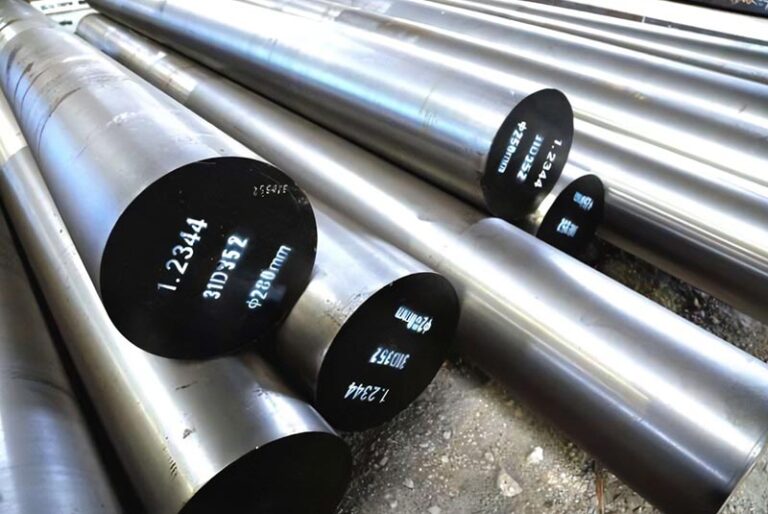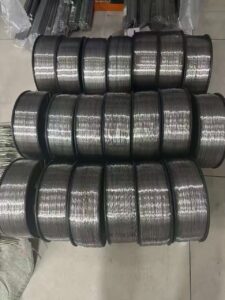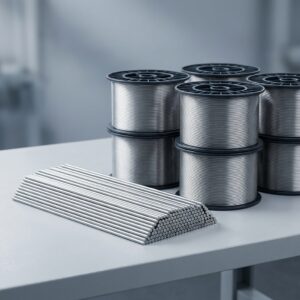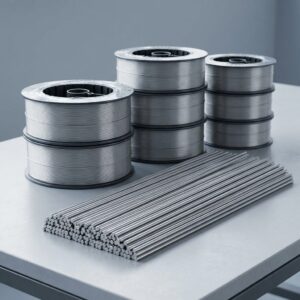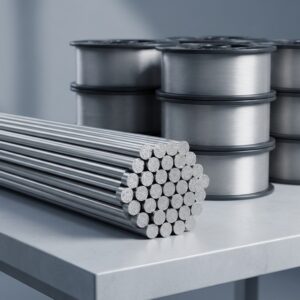Unveiling the Marvels of H13 1.2344 Tool & Mould Steel: A Comprehensive Exploration
Introduction
In the domain of tool and mould steels, certain alloys stand out for their exceptional properties crucial for various industrial applications. Among them is H13 1.2344 Tool & Mould Steel, celebrated for its outstanding combination of hardness, toughness, and heat resistance. Join us as we embark on a journey to uncover the intricacies and advantages of this remarkable material, delving into its composition, properties, applications, suppliers, pricing, and expert insights.
Overview of H13 1.2344 Tool & Mould Steel
H13 1.2344 Tool & Mould Steel is renowned for its superior properties, making it a preferred choice for a wide range of tooling and moulding applications.
Chemical Composition
| Element | Percentage |
|---|---|
| Carbon (C) | 0.35-0.45% |
| Silicon (Si) | 0.80-1.20% |
| Manganese (Mn) | 0.20-0.50% |
| Chromium (Cr) | 4.75-5.50% |
| Vanadium (V) | 0.80-1.20% |
Mechanical Properties
- Hardness (Rockwell C): 48-52 HRC
- Tensile Strength: 1200-1400 MPa
- Yield Strength: 1000-1200 MPa
- Elongation: 10-15%
Standards
- H13 1.2344: International standard for tool and mould steels
Exploring the Features and Advantages
H13 1.2344 Tool & Mould Steel boasts a plethora of features and advantages that make it an ideal choice for tooling and moulding applications.
Features
- Excellent wear resistance and heat resistance
- High hardness and toughness
- Good machinability and dimensional stability
- Suitable for hot work tooling applications
Advantages
- Widely used in applications requiring high temperature resistance, such as die casting, hot forging, and extrusion
- Provides reliable performance under heavy loads and extreme temperatures
- Offers cost-effectiveness and ease of heat treatment for optimizing properties
Comparison Between H13 1.2344 Tool & Mould Steel and Competing Materials
Let’s compare the advantages and disadvantages of H13 1.2344 Tool & Mould Steel with a competing material, Alloy X:
| Parameter | H13 1.2344 Tool & Mould Steel | Alloy X |
|---|---|---|
| Hardness | High | Moderate |
| Toughness | Very High | Low |
| Heat Resistance | Excellent | Moderate |
| Cost | Moderate | Higher |
Applications and Uses
From die casting to hot forging, H13 1.2344 Tool & Mould Steel finds widespread application in various industries.
| Industry | Applications |
|---|---|
| Die Casting | Die casting dies, inserts, cores |
| Hot Forging | Hot forging dies, extrusion dies |
| Moulding | Injection moulds, compression moulds |
Navigating Suppliers and Pricing
Sourcing H13 1.2344 Tool & Mould Steel requires careful consideration of reliable suppliers offering quality products at competitive prices.
| Supplier | Price Range (per unit) | Description/Notes |
|---|---|---|
| Bohler Uddeholm | $20 – $30 per kilogram | Leading global supplier of tool and mould steels |
| Thyssenkrupp | $25 – $35 per kilogram | Specializes in high-performance tool and moulding materials |
| Crucible Industries | $30 – $40 per kilogram | Offers a wide range of tool and mould steel products |
FAQs about H13 1.2344 Tool & Mould Steel
Q: Can H13 1.2344 Tool & Mould Steel be heat treated?
A: Yes, it can be heat treated to achieve desired mechanical properties, such as increased hardness and heat resistance.
Q: What are the common applications of H13 1.2344 Tool & Mould Steel?
A: Common applications include die casting dies, hot forging dies, and various moulding applications.
Q: Where can I buy H13 1.2344 Tool & Mould Steel?
A: You can source H13 1.2344 Tool & Mould Steel from reputable suppliers such as Bohler Uddeholm, Thyssenkrupp, and Crucible Industries.
Q: What specifications does H13 1.2344 Tool & Mould Steel conform to?
A: This tool and mould steel conforms to standards such as H13 1.2344, ensuring compliance with stringent quality requirement.

